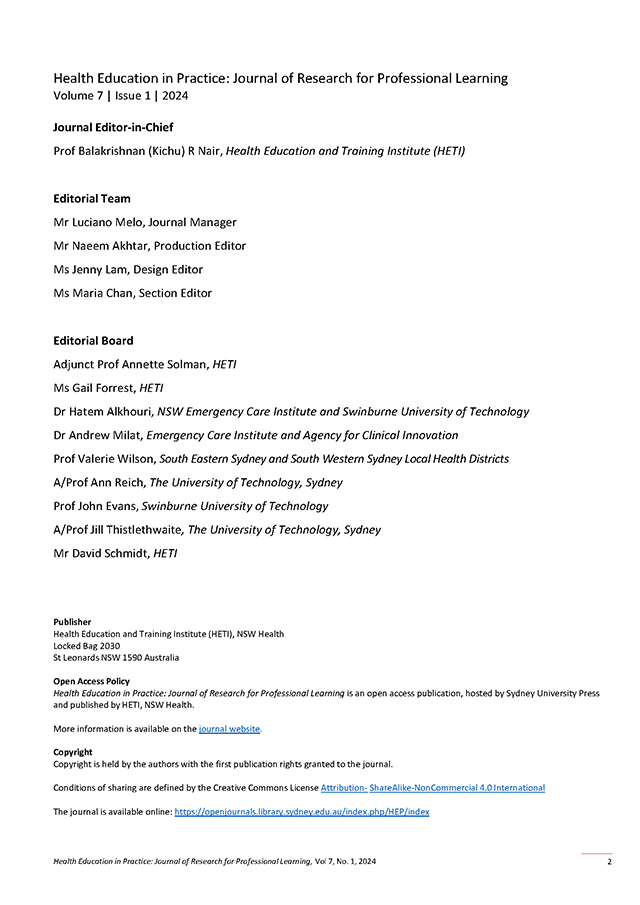Attitudes towards research in graduate-entry Australian physiotherapy students: a survey
DOI:
https://doi.org/10.33966/hepj.7.1.18040Abstract
Purpose: To assess the attitudes towards research in a two-year, graduate-entry Master of Physiotherapy course.
Methodology: All students starting (T0) and ending (T1) their degrees in 2020 and 2021 were invited to complete the revised Attitudes Towards Research Questionnaire. This is a three-factor instrument with 13 statements assessing Research Usefulness (four statements, scores ranging from 4 to 28), Research Anxiety (five statements, scores ranging from 5 to 35), and Positive Research Predispositions (four statements, scores ranging from 4 to 28). Each statement was scored using a seven-item Likert scale ranging from ‘Strongly Agree’ (1) to ‘Strongly Disagree’ (7). Student responses between T1 and T0 for factor scores were compared using independent samples t-tests and summarised using mean differences (95% CIs). We defined the minimally important difference as 15% of the scale range.
Findings: Ninety-seven percent (n=124/129) of students completed the survey at T0 and 57% (n=79/125) at T1.
We found no difference between T0 and T1 in research anxiety (0.2 points, 95% CI: –1.5 to 2.0) and research usefulness (–0.9 points, 95% CI: –1.8 to 0.1), but a significant (although not meaningful) decrease in positive research predispositions between T0 and T1 (–1.7 points, 95% CI –3.2 to –0.2).
Research implications: Qualitative research could complement these quantitative findings and provide in-depth reasons for student scores.
Practical implications: Educators need more active strategies to improve attitudes and engagement in research-focused subjects to further engage students.
Originality/value: This is the first study to document attitudes towards research in an Australian graduate-entry Master of Physiotherapy program.
Limitations: There is likely bias (unclear in which direction) at T1 given that 57% of students completed the survey. Surveys were not linked, so group differences were assessed independently.
Keywords: Evidence-based practice; research methods; Master of Physiotherapy, UTS Physiotherapy Student surveys (PHYSS) study
Downloads
Published
Versions
- 2024-07-18 (3)
- 2024-07-17 (2)
- 2024-07-17 (1)

